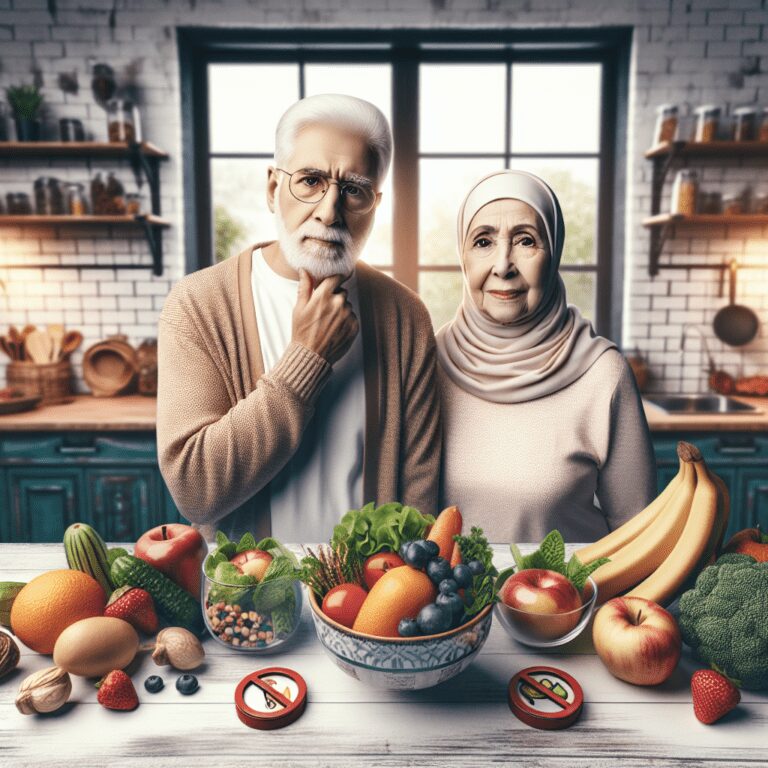

Aging naturally brings changes to our bodies, affecting everything from energy levels to cognitive function. While many factors contribute to the aging process, proper nutrition plays a significant role. Certain vitamins can support seniors in maintaining vitality and managing age-related challenges. Here, we explore three essential vitamins that can help seniors conquer aging.
Chapter 1: Vitamin D – The Sunshine Vitamin
Overview:
Vitamin D is vital for maintaining healthy bones and a robust immune system. As we age, our ability to synthesize vitamin D from sunlight decreases, making supplementation important for many seniors.
Why It’s Important:
Without adequate vitamin D, seniors face risks like osteoporosis and increased susceptibility to infections. This vitamin also supports mood regulation, which can positively impact mental health.
Who Will Use It:
Seniors with limited sun exposure, those living in northern climates, or individuals who spend most of their time indoors may particularly benefit from vitamin D.
What Is It?
Vitamin D exists in two main forms: D2 (ergocalciferol) and D3 (cholecalciferol). D3 is more effective in raising blood levels of the vitamin.
How to Use:
The recommended daily allowance for most seniors is 800 to 1,000 IU. Choose supplements with vitamin D3 for optimal absorption or incorporate foods rich in vitamin D, such as fatty fish, fortified dairy, and egg yolks.
Pros and Cons:
Pros include improved bone health and immune support, while excess consumption can lead to toxicity. Balance is key.
Chapter 2: Vitamin B12 – The Energy Booster
Overview:
Vitamin B12 plays a critical role in energy metabolism and red blood cell formation. It’s essential for preserving brain health and maintaining nerve function.
Why It’s Important:
With age, the ability to absorb B12 from food diminishes due to decreased stomach acid production. A deficiency can result in fatigue, mood changes, and cognitive decline.
Who Will Use It:
Seniors following a vegetarian or vegan diet may require B12 supplementation, as this vitamin primarily comes from animal sources.
What Is It?
B12, or cobalamin, is a water-soluble vitamin that supports various bodily functions, including DNA synthesis.
How to Use:
Seniors should aim for approximately 2.4 mcg per day, which can be achieved through supplements or fortified foods like cereals and plant-based milk.
Pros and Cons:
Benefits include increased energy and improved mental clarity. Some might experience minor gastrointestinal upset with high doses. Consult a healthcare provider to find the right balance.
Chapter 3: Vitamin C – The Immune Enhancer
Overview:
Vitamin C is famous for its antioxidant properties, supporting immune function and skin health. It aids in collagen formation, essential for skin elasticity in aging adults.
Why It’s Important:
With advancing age, the body’s defense mechanisms weaken, making it vital to include vitamin C to bolster immune responses and overall health.
Who Will Use It:
Seniors experiencing frequent colds, skin issues, or slow wound healing may particularly benefit from increased vitamin C intake.
What Is It?
Vitamin C, or ascorbic acid, is a water-soluble vitamin that plays numerous roles in health, especially as an antioxidant that combats free radicals.
How to Use:
Aim for 75 mg per day for women and 90 mg for men. Fresh fruits and vegetables, especially citrus fruits, strawberries, bell peppers, and broccoli, are excellent sources.
Pros and Cons:
The benefits include enhanced immunity and skin health. Excessive amounts can result in gastrointestinal distress, making it essential to stay within recommended limits.
Chapter 4: Practical Tips for Incorporating Vitamins
- Diet First: Focus on a well-balanced diet rich in fruits, vegetables, lean proteins, whole grains, and healthy fats.
- Sun Exposure: Spend time outdoors to naturally boost vitamin D levels.
- Routine Check-Ups: Regular health screenings can help identify vitamin deficiencies.
- Supplements: Use high-quality supplements when dietary intake is insufficient.
- Stay Hydrated: Water aids in nutrient absorption, so maintain adequate hydration.
- Meal Planning: Prepare meals that include a variety of vitamin-rich foods.
- Consult a Professional: Speak with a healthcare provider before starting any new vitamin regimen.
- Track Your Intake: Keep a food diary to ensure you’re meeting your nutritional needs.
- Educate Yourself: Read up on foods high in essential vitamins and incorporate them into your diet.
- Community Resources: Join a wellness group where information about health and nutrition is shared.
Chapter 5: FAQs
1. What are the best sources of Vitamin D for seniors?
Fatty fish, fortified milk, and sunlight are excellent sources.
2. How can I tell if I need more Vitamin B12?
Signs include fatigue, weakness, and memory problems. A blood test can confirm deficiency.
3. Can I get enough Vitamin C from my diet?
Yes, incorporating fruits and vegetables, especially citrus, can meet daily requirements.
4. Are there any side effects of taking these vitamins?
Excessive vitamin intake can lead to health issues. Follow recommended guidelines.
5. How can I improve my absorption of these vitamins?
Ensure you eat a balanced diet, stay hydrated, and consult your doctor about potential absorption issues.
Embracing these nutrients can significantly enhance quality of life for seniors. A proactive approach to health not only empowers individuals but fosters a positive atmosphere for aging gracefully.
Disclaimer: As an Amazon Associate, I earn from qualifying purchases; I may earn a commission from qualifying purchases as an affiliate. Please note that I only recommend products I believe will provide value to my readers.








